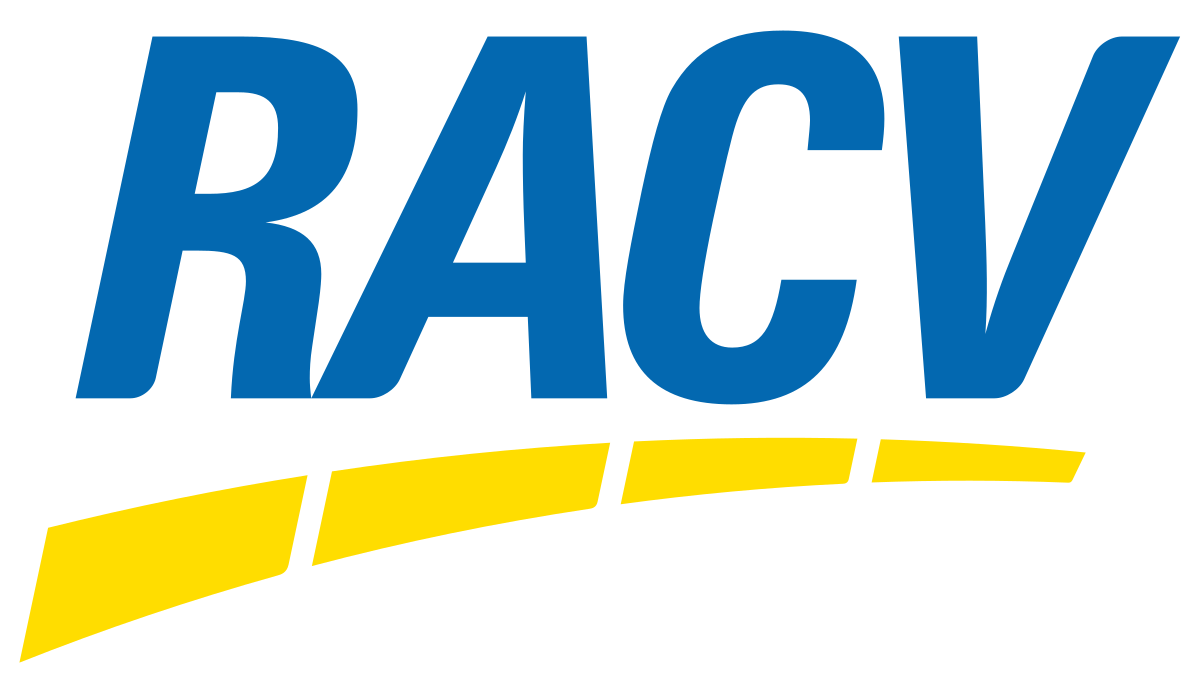








Editorial note: Forbes Advisor Australia may earn revenue from this story in the manner disclosed here. Read our advice disclaimer here.
Australians’ love for driving has only increased in recent decades, with the country now boasting one of the highest rates of motor vehicle ownership per capita in the world, easily outpacing the UK and Germany, according to the International Organisation of Motor Vehicle Manufacturers (IOMVM).
An extensive road network and a year-round pleasant climate has supported our fondness for road trips, but the vast distances between destinations means there is always the threat of an unexpected vehicle breakdown or a flat battery that can easily scuttle our holiday plans.
This is where roadside assistance comes in, providing the reassurance of professional help if your vehicle ever gets stranded, bogged or simply breaks down.
- Featured Partners
- What Is Roadside Assistance in Australia?
- Our Pick of the Best Roadside Assistance
- Allianz
- Budget Direct
- Suncorp
- Aami
- Youi
- NRMA
- RACV
- RACWA
- RACQ
- RAA SA
- Methodology
- How to Compare Roadside Assistance
- Can You Choose a Different Provider to Your Insurer?
- Frequently Asked Questions (FAQs)
What Is Roadside Assistance in Australia?
Roadside assistance is a mechanical service provided to drivers when their vehicle breaks down, and is designed to provide basic repairs or aid that allows them to get back on the road again.
It can cover a whole range of services but the most common roadside-assistance requests include jumpstarting flat batteries, tyre changes, breakdown tows, emergency fuel, or even recovering keys from locked cars.
More expensive roadside assistance plans may also provide extra features, including “health checks” for your vehicle, child seat installation, emergency accommodation in case of breakdowns away from home, or even temporary transport, such as hire cars.
Drivers wishing to make use of roadside assistance will typically contact their provider, where a representative will usually try to diagnose and fix the problem over the phone. If that doesn’t work, they will send out a mobile roadside technician to help restart the vehicle on the spot or alternatively send a tow truck to transport the car to the nearest service centre.
In Australia, roadside assistance plans can be purchased from car manufacturers as part of the company’s after-sales service, as an optional add-on feature with drivers’ annual insurance, or via state-based motoring clubs as a service for members.
Basic roadside assistance plans typically cost less than $100 a year, while those with more benefits and extra features can cost as much as $350.
Our Pick of the Best Roadside Assistance
Note: The below list represents a selection of our top category picks, as chosen by Forbes Advisor Australia’s editors and journalists. The information provided is purely factual and is not intended to imply any recommendation, opinion, or advice about a financial product. Not every product or provider in the marketplace has been reviewed, and the list below is not intended to be exhaustive nor replace your own research or independent financial advice. For more information on how Forbes Advisor ranks and reviews products, including how we identified our top category picks, read the methodology selection below.
Best Roadside Assistance Via Insurance
Wide-range of benefits
Allianz


Unlimited call-outs
Yes
Price
Basic from $99 and Platinum Plan from $139
Wait period before use
48 hours

Unlimited call-outs
Yes
Price
Basic from $99 and Platinum Plan from $139
Wait period before use
48 hours
Allianz’s roadside assistance plan is one of the leading options in the Australian market, covering faulty batteries, flat tyres, emergency fuel/EV charge and lost keys under its Basic Plan. The Platinum Plan is relatively affordable compared to other higher-level plans but still provides valuable extras. These include a higher towing limit of 100km, rental car, double the standard taxi benefit at $100 and generous temporary accommodation up to 10 nights.
Both levels can be purchased as standalone products without an insurance policy, but there is a 48-hour waiting period for benefits to start. The insurer does not offer any discounts on the plan, and it also has a relatively low limit of free fuel cover at up to 10 litres.
- More than one level of cover
- Cover for rental car, accommodation and taxi
- Cost for higher level of cover is affordable compared to others
- Can access benefits during wait period for an additional fee
- 48-hour wait period
- Low free fuel coverage
Online Discount
Budget Direct


Unlimited call-outs
Yes
Price
$89.95 per year
Wait period before use
48 hours

Unlimited call-outs
Yes
Price
$89.95 per year
Wait period before use
48 hours
Budget Direct’s roadside assistance plan is available in a single level of cover with all of the standard features drivers would expect, such as faulty battery, flat tyres, emergency fuel, and lost key rescue. While the price is already reasonable, drivers can also benefit from a 15% online discount, and the plan can be purchased as a standalone without an insurance policy.
It has a 48-hour waiting period for benefits to start, a relatively low limit of free fuel cover up to $15, and a towing limit of 20km within metro areas. The driver foots the bill for a rental car, taxi or temporary accommodation, although the insurer can help organise these logistics.
- Unlimited call-outs
- Online discount
- Reasonable price
- Rental car, accommodation, taxi costs not covered
- Single level of cover
- 48-hour wait period.
Can be purchased separately
Suncorp


Unlimited call-outs
Yes
Price
From $95 a year
Wait period before use
24 hours

Unlimited call-outs
Yes
Price
From $95 a year
Wait period before use
24 hours
Suncorp offers a single level of cover in its roadside assistance plan, which includes tyre change, flat battery, emergency fuel, lost key rescue, as well as caravan or trailer assistance. Pricing is reasonable, and customers can also apply a $50 discount when taking-out the plan online. The plan is available both as a standalone product, as well as an add-on with an insurance policy.
It has a 24-hour waiting period for benefits to start and unlimited call-outs, but on the downside has quite a low limit of fuel cover at $10, a towing limit of 20km within metro areas, and the plan does not include rental car, taxi benefit or temporary accommodation.
- Unlimited callouts
- $50 online discount
- Available as standalone or add-on to insurance
- No rental car, accommodation, taxi costs
- Single level of cover
Budget friendly
Aami


Unlimited call-outs
Yes
Price
Up to $86 a year
Wait period before use
24 hours

Unlimited call-outs
Yes
Price
Up to $86 a year
Wait period before use
24 hours
AAMI’s roadside assistance plan is a budget-friendly option offering a number of standard features, however, it is only available to AAMI’s comprehensive car insurance policy-holders. For AAMI insurance holders, it covers flat battery and tyres, emergency fuel, lost key rescue as well the cost of transporting drivers’ caravans or trailers. AAMI customers receive a $50 online discount, while cover for locked or lost keys is generous at up to $250. However, towing and fuel cover limits are relatively low, and the plan does not cover rental car, taxi benefit or temporary accommodation.
- Unlimited callouts
- Online discount for insurance
- Reasonable price
- Rental car, accommodation, taxi costs not covered
- Low fuel allowance
- Only available with comprehensive insurance cover
Complimentary with car insurance
Youi


Unlimited call-outs
No, only first two call-outs free
Price
Complimentary with comprehensive insurance
Wait period before use
24 hours

Unlimited call-outs
No, only first two call-outs free
Price
Complimentary with comprehensive insurance
Wait period before use
24 hours
Youi’s roadside assistance plan, known as Youi Assist, offers a range of features including flat battery and tyre care, emergency fuel, lost key rescue, towing as well caravan or trailer assistance. Towing is covered for 20km in metro areas and 50km elsewhere, while locked or lost keys are covered up to $150. The free fuel cover limit is low at 10 litres, while one taxi ride worth up to $50 is included. Although the plan comes at no extra cost, it is only available with Youi’s comprehensive car insurance policy-holders. In addition, only the first two call-outs are free for year, and the plan does not include any rental car or temporary accommodation.
- Included free with insurance
- Includes taxi cover
- Includes locked or lost key cover
- Rental car, accommodation not covered
- Only two free call-outs
- Only available with comprehensive insurance cover
Best Roadside Assistance Via Car Clubs
Generous accommodation benefit
NRMA


Unlimited call-outs
Yes
Price
Everyday Care $134 a year; Complete Care $233 a year; and Ultimate Care $295 a year.
Wait period
48 hours

Unlimited call-outs
Yes
Price
Everyday Care $134 a year; Complete Care $233 a year; and Ultimate Care $295 a year.
Wait period
48 hours
NRMA’s roadside assistance plan is considered among the best options available in the market, and for good reason. Its lowest-tier plan offers unlimited call-outs, faulty battery and flat tyre coverage, emergency fuel/EV charge, towing up to 25km in metro areas and add-on options for windscreen chip repair, key replacement, and even pet travel assistance. The top-tier offering includes some generous extra features: a towing limit of 100km, caravans up to two tonne covered, $200 locksmith allowance, $50 taxi allowance up to three times per year, and up to $4,000 in breakdown travel assistance.
All three levels of the plan can be purchased as standalone products, but come with a 48-hour wait period. However, the prices for all three tiers are relatively expensive, and there are no discounts on offer.
- More than one level of cover
- Includes taxi, rental vehicle, accommodation cover
- Generous towing and key replacement benefits
- High cost
- 48-hour wait period
- No discounts
Unlimited call-outs
RACV


Unlimited call-outs
Yes
Price
Roadside Care $134 a year; Extra Care $222 a year; Total Care $305 a year
Wait period
24 hours

Unlimited call-outs
Yes
Price
Roadside Care $134 a year; Extra Care $222 a year; Total Care $305 a year
Wait period
24 hours
RACV’s (Victorian) roadside assistance plan is available with three levels of cover, with the lowest tier including a range of standard features like unlimited call-outs, faulty battery, flat tyres, emergency fuel/EV charge, and towing. The higher tiers offer generous benefits including a towing limit of 100km; up to $350 locksmith allowance; and a rental car, taxi and temporary accommodation allowance up to $2,400. While the higher level cover isexpensive, discounts are available based on the level and length of RACV membership. The plans are also only available in Victoria.
- More than one level of cover
- Includes taxi, rental vehicle, accommodation cover
- Towing limit is high
- High cost
- Only available in Victoria
For WA residents
RACWA


Unlimited call-outs
Yes
Price
Standard $122 a year; Classic $205 a year; Ultimate $305 a year; Ultimate Plus $365 a year
Wait period
48 hours

Unlimited call-outs
Yes
Price
Standard $122 a year; Classic $205 a year; Ultimate $305 a year; Ultimate Plus $365 a year
Wait period
48 hours
RACWA’s roadside assistance plan is available with four different levels of cover, with the lowest tier including standard features like unlimited call-outs, faulty battery, flat tyres, emergency fuel/EV charge, and towing up to 15km in metro areas. The higher-tiers offer generous benefits including a towing limit of up to 200km in metros, locksmith cover up to $200, up to $1,260 for car hire and accommodation, and a taxi benefit. The higher-level covers are expensive, though, and the plans are only available to WA residents, even when they are travelling interstate.
- More than one level of cover
- Includes taxi, rental vehicle, accommodation cover
- Can be used when driving interstate
- High cost
- 48-hour wait period
- Only available in WA
Youth discount
RACQ


Unlimited call-outs
Yes
Price
Everyday Lite: $69 a year; Everyday: $121 a year; Everyday Plus: $199 a year; Ultra Care: $252 a year; Ultimate Care: $344 a year; RACQ RV: $519 a year
Wait period
48 hours; 72 hours for certain benefits

Unlimited call-outs
Yes
Price
Everyday Lite: $69 a year; Everyday: $121 a year; Everyday Plus: $199 a year; Ultra Care: $252 a year; Ultimate Care: $344 a year; RACQ RV: $519 a year
Wait period
48 hours; 72 hours for certain benefits
RACQ (Queensland) offers roadside assistance across six different plans giving drivers a wide range of choice and benefits. The lowest tier includes basic features, such as unlimited callouts and towing with a 20km limit, but does not include emergency fuel. At the higher levels, there are a range of extra features including up to 100km towing, free emergency fuel up to four times a year, generous rental vehicle and accommodation benefits, as well as taxi cover. The higher level covers are costly, however youth discounts of $35 to $50 are available for members aged between 16 and 20 years. These plans are only available in Queensland.
- More than one level of cover
- Includes taxi, rental vehicle, accommodation cover
- Offers youth discount
- High cost
- 48-hour wait period
- Only available in Queensland
Pet cover included
RAA SA


Unlimited call-outs
Yes
Price
Standard $123 per year; Plus $186 per year; Premium $259 per year
Wait period
48 hours

Unlimited call-outs
Yes
Price
Standard $123 per year; Plus $186 per year; Premium $259 per year
Wait period
48 hours
RAA SA’s roadside assistance plan is available with three levels of cover. The lowest-tier includes four call-outs, towing up to 10km in metro areas and a $50 locksmith allowance. The higher tiers are more generous, offering unlimited call-outs; a towing limit of 100km; up to $150 locksmith allowance; cover for pet boarding when stranded; as well as limited rental car, taxi and temporary accommodation allowances. On the downside, the higher-level tiers are relatively expensive compared to the benefits offered, emergency fuel is not covered under the plans, and they are only available in South Australia.
- More than one level of cover
- Includes taxi, rental vehicle, accommodation cover
- Pet cover available
- Expensive
- Emergency fuel at cost to customer
- Only available in South Australia
Methodology
To find the best roadside assistance in Australia, Forbes Advisor performed an in-depth analysis of 20 of the most popular plans in the country.
The analysis included evaluating the type of plan and cover; the specific events and optional inclusions; and an in-depth review of each provider’s product disclosure statement (PDS) to evaluate any exclusions and extras.
In Australia, roadside assistance plans can be purchased from car manufacturers as part of the company’s after-sales service, as an optional add-on feature with drivers’ annual insurance, or via state-based motoring clubs as a service for members. Basic roadside assistance plans typically cost less than $100 a year, while those with more benefits and extra features can cost as much as $350.
There were 18 key criteria that were analysed for each insurer or motoring club that provides roadside assistance to allow for a fair comparison. These were:
- Type of coverage: Whether free roadside assistance is included with the insurance policy.
- Purchase options: Whether car insurance needs to be purchased to buy roadside assistance.
- Levels of coverage: Whether the provider offers more than one type of roadside assistance.
- Pricing: What is the price for each level of roadside assistance plan?
- Discounts: Are any discounts being offered on the cost of roadside assistance?
- Time frame for use: How quickly can you use roadside assistance after purchase?
- Coverage: Whether the provider offers 24/7 roadside assistance.
- Inclusions: What is typically covered under the roadside assistance plan?
- Exclusions: What are the specific exclusions from the roadside assist plan?
- Who is covered: Whether the plan covers the driver or the vehicle or both?
- Towing: Whether the plan has any towing limits specified in kilometres.
- Call-out limits: Is there a limit on how many times you can call out for assistance in a year?
- Emergency fuel: Whether or not the plan provides emergency supply when you run out of fuel.
- Locksmith cover: Whether the plan has an annual allowance for a locksmith if you have left your keys in the car or lost them.
- Rental car: Are you entitled to a rental car benefit after your car breaks down?
- Accommodation: Is there a provision in the plan for emergency accommodation and how does it apply?
- Taxi benefit: Is there a stipend for a taxi in case the car breaks down and how much is the limit?
- Additional features: Does the provider offer additional benefits such as pet boarding allowance in case drivers are stranded, or assistance with caravans or trailers?
These variables were compared to then rank each provider, who were organised into two camps of roadside assistance: either insurers or motoring clubs. Each provider was ranked between one to five stars, with the leading providers (those ranked 3.5 or higher) included in the above best-of list.
A Note on Star Rankings
You will note that we have included a star rating next to each product or provider. This rating was determined by the editorial team once all of the data points above were considered, and the pros and cons of each product attribute was reviewed. The star rating is solely the view of Forbes Advisor editorial staff. Commercial partners or advertisers have no bearing on the star rating or their inclusion on this list. Star ratings are only one factor to be considered, and Forbes Advisor encourages you to seek independent advice from an authorised financial adviser in relation to your own financial circumstances and investments before you decide to choose a particular financial product or service.
How to Compare Roadside Assistance
Roadside assistance plans can vary significantly in terms of their costs as well as the services offered, so it makes sense to evaluate them on the basis of certain common features such as:
- Cost: Some insurers offer roadside assistance at no extra cost with other types of insurance, while some manufacturers also throw in complimentary roadside assistance on new vehicles. While plans offering basic services can be purchased for less than $100 a year, those with bells and whistles can cost upwards of $350 a year.
- Location: What level of roadside assistance you need will depend on where you live and where you generally drive. For instance, if you live and drive in a city, a budget plan could be enough to suit your needs. On the other hand, if you live in the countryside or travel a lot, then you might want to consider a higher level of cover.
- Benefits: Most inexpensive plans offered by car insurers provide all the basic roadside assistance services for flat batteries, tyre change, emergency fuel, etc. On the other hand, roadside assistance plans offered by car clubs cost more, but they also tend to provide more features and higher cover limits.
- Type of vehicle: While most cars are covered under standard basic plans, certain types of heavier vehicles such as trailers, caravans, or a four-wheel-drive may need more specialised towing services that are available in more expensive plans.
- Limits: Some plans limit the maximum number of callouts for a service per year, others limit the distance they will tow your vehicle before an extra payment is required, or put a cap on features such as payment for lost keys or the amount of emergency fuel they will cover for free.
Can You Choose a Different Provider to Your Insurer?
Most car insurance providers offer roadside assistance plans either as an inclusion or as an optional extra with their comprehensive car insurance policies.
For example, Youi and Huddle include roadside assistance for free with their car insurance. Other insurers, such as Shannon’s, Bupa, and AAMI offer them as an optional extra that you pay for. In either case, it is only available when you also purchase the company’s comprehensive car insurance.
However, a handful of insurers such as Allianz, Budget Direct and Suncorp offer a roadside assistance plan as a stand-alone product; that means drivers can purchase a roadside assistance policy with one of these insurers and hold their car insurance policy with another company.
Data research: Mia Dunn
Additional editing: Kevin Pratt
Frequently Asked Questions (FAQs)
Does NRMA cover all of Australia?
Yes, NRMA roadside assistance is available Australia-wide. Even in states where the NRMA is not directly present, it has reciprocal arrangements with that state or territory’s motoring club, which entitle its members to the club’s basic tier of roadside assistance as a bare minimum.
How much is NRMA roadside assist annually?
The National Roads and Motorists’ Association (NRMA) offers three levels of roadside assistance cover starting at $137 for basic coverage a year up to $324 a year.
Does RACV roadside assist cover Australia wide?
Yes, if you have purchased Royal Automotive Club of Victoria’s roadside assistance plan, you can obtain assistance across Australia through the reciprocal motoring club of that state or territory.
The information provided by Forbes Advisor is general in nature and for educational purposes only. Any information provided does not consider the personal financial circumstances of readers, such as individual objectives, financial situation or needs. Forbes Advisor does not provide financial product advice and the information we provide is not intended to replace or be relied upon as independent financial advice. Your financial situation is unique and the products and services we review may not be right for your circumstances. Forbes Advisor encourages readers to seek independent expert advice from an authorised financial adviser in relation to their own financial circumstances and investments before making any financial decisions.
We do not offer financial advice, advisory or brokerage services, nor do we recommend or advise individuals to buy or sell particular stocks or securities. Performance information may have changed since the time of publication. Past performance is not indicative of future results. Forbes Advisor provides an information service. It is not a product issuer or provider. In giving you information about financial or credit products, Forbes Advisor is not making any suggestion or recommendation to you about a particular product. It is important to check any product information directly with the provider. Consider the Product Disclosure Statement (PDS), Target Market Determination (TMD) and other applicable product documentation before making a decision to purchase, acquire, invest in or apply for a financial or credit product. Contact the product issuer directly for a copy of the PDS, TMD and other documentation. Forbes Advisor adheres to strict editorial integrity standards. To the best of our knowledge, all content is accurate as of the date posted, though offers contained herein may no longer be available. The opinions expressed are the author’s alone and have not been provided, approved or otherwise endorsed by our partners. For more information, read our Advice Disclaimer here.
Prashant Mehra is a freelance journalist based in Sydney. He has more than 20 years of international experience covering financial news, including with Reuters and the Australian Associated Press (AAP). He writes about business, markets, the economy and investing.